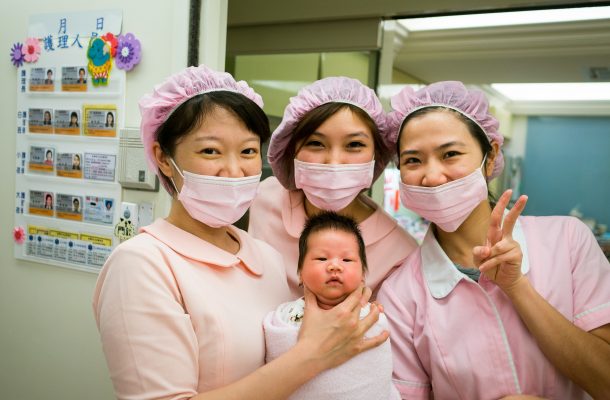Nursing the next generation

With focus on the current COVID 19 pandemic squarely on the acute care setting and clinicians providing care in hospitals, the shift to resourcing and redeployment of clinicians from community based health services to the acute care services may hit a critical juncture.
This strategy is being implemented across various health districts and services Australia wide. Whilst in the short term this an effective strategy there is a need to be cautious. Health services need to consider the impact on the work of nurses who provide care and support to families in the community, in particular maternal/child health nurses who are providing preventative care and support to women and families in the perinatal period until a child turns 5.
Many maternal/child health nurses advise they are being redeployed to areas managing the COVID 19 pandemic, for example to support activities such as contact tracing and ‘drive through’ screening clinics for COVID 19 testing. Whilst this is important work in managing this pandemic we need to consider the long term unintended consequences of the service realignment strategy and its impact on families with infants and young children; and the nurses providing their care.
The COVID 19 virus has raised increased anxiety for pregnant women, and families adding an additional layer of complexity. Many families with young children may have recently experienced being stood down or lost employment placing an added burden during an already vulnerable time.
We are hearing of the increase in the number of other risks, not limited to family and intimate partner violence where the potential impact cannot be underestimated. With reports many women are being discharged from hospital 4 to 6 hours following birth in many public hospitals with some midwifery care provided in the immediate postnatal period is a cause for concern.
Whilst not advocating women stay in hospital for any longer period than needed statistically we know during normal circumstances across the population 15 to 25 % of women will suffer with some form of psychosocial distress to severe mental health concern during this time.
Maternal child/health nurses are well placed to mitigate and intervene early as challenges arise especially in relation to these mental health complexities, along with the many aspects of parenting not limited to breast feeding and child and family health and wellbeing.
As a nurse consultant in the maternal child health area working with the states and territories across Australia I have had many conversations with nurses in this current situation.
These nurses are concerned about the capacity to continue to maintain and sustain engagement with families, especially families who may fall through the cracks; and in particular families with significant adversity and risk factors that will potentially impact negatively on the capacity to parent, develop a secure attachment with their baby, safe family functioning and the development of the infant.
As we move through this pandemic to the other side of the new normal we must be prepared for the long term impact on families, in particular the developing child; and the increased pressure for maternal/child health nurses where the current caseload is already complex.
Whilst understanding the importance of the work in managing this unpreceded situation maternal/ child health nurses need to remain in the community now more than ever so they may continue to deliver care to families in the safest way possible, there is no greater time than now our health services and families need them.
Tracey Bruce iss currently working with the Translational Research and Social Innovation (TReSI)Group, Western Sydney University as Maternal Early Childhood Sustained Home Visiting Implementation Consultant.













